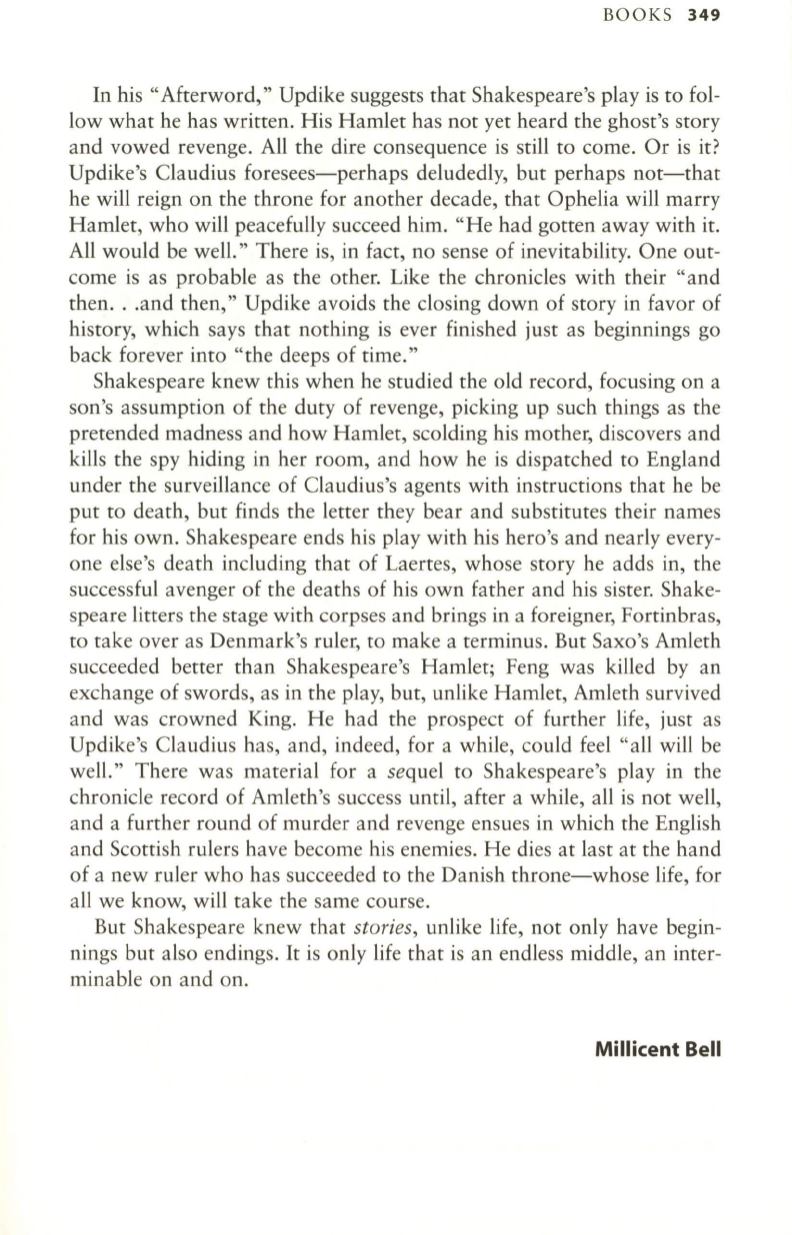
BOOKS
349
In his"Afterword," Updike suggests that Shakespeare's play is to fol–
low what he has written. His Hamlet has not yet heard the ghost's story
and vowed revenge. All the dire consequence is still to come. Or is it?
Updike's Claudius foresees-perhaps deludedly, but perhaps not-that
he will reign on the throne for another decade, that Ophelia will marry
Hamlet, who will peacefully succeed him. "He had gotten away with it.
All would be well." There is, in fact, no sense of inevitability. One out–
come is as probable as the other. Like the chronicles with their "and
then...and then," Updike avoids the closing down of story in favor of
history, which says that nothing is ever finished just as beginnings go
back forever into "the deeps of time."
Shakespeare knew this when he studied the old record, focusing on a
son's assumption of the duty of revenge, picking up such things as the
pretended madness and how Hamlet, scolding his mother, discovers and
kills the spy hiding in her room, and how he is dispatched to England
under the surveillance of Claudius's agents with instructions that he be
put to death, but finds the letter they bear and substitutes their names
for his own. Shakespeare ends his play with his hero's and nearly every–
one else's death including that of Laertes, whose story he adds in, the
successful avenger of the deaths of his own father and his sister. Shake–
speare litters the stage with corpses and brings in a foreigner, Fortinbras,
to take over as Denmark's ruler, to make a terminus. But Saxo's Amleth
succeeded better than Shakespeare's Hamlet; Feng was killed by an
exchange of swords, as in the play, but, unlike Hamlet, Amleth survived
and was crowned King. He had the prospect of further life, just as
Updike's Claudius has, and, indeed, for a while, could feel "all will be
well." There was material for a sequel to Shakespeare's play in the
chronicle record of Amleth's success until, after a while, all is not well,
and a further round of murder and revenge ensues in which the English
and Scottish rulers have become his enemies. He dies at last at the hand
of a new ruler who has succeeded to the Danish throne- whose life, for
all we know, will take the same course.
But Shakespeare knew that
stories,
unlike life, not only have begin–
nings but also endings.
It
is only life that is an endless middle, an inter–
minable on and on.
Millicent Bell


